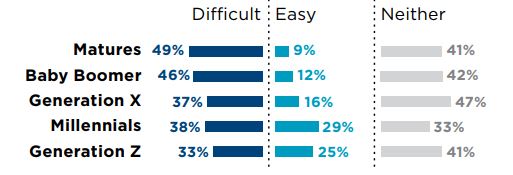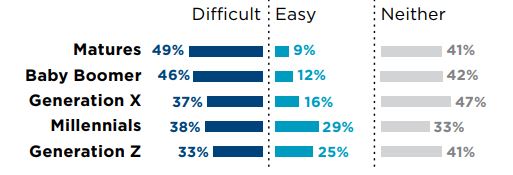The world appears to be experiencing acts of terror, tragedies and natural disasters with increasing frequency. Last week, we learned of the horrific mass killing of 50 people and 50 others injured during the March 15th shooting that took place at the Al Noor Mosque and Linwood Islamic Centre in Christchurch, New Zealand. It is difficult to express in words the cruelty of this brutal violence against people gathered in prayer.
In Africa, the President of Mozambique announced yesterday that Cyclone Idai had killed more than 1,000 people and the neighboring countries of Malawi and Zimbabwe were also impacted. As reported, people are clinging to rooftops to be rescued. Some are calling this a “massive disaster.” International relief organizations such as Save the Children are responding to help.
In the United States, there is record flooding in Iowa and Nebraska as well as parts of South Dakota, Ohio, Wisconsin, Missouri and Illinois. Melting snow and record rainfalls have resulted in overflowing rivers and levees. Hundreds have fled homes for safety. While the water has receded in some places, there is much anticipated damage and destruction. Major disaster relief organizations such as the American Red Cross and Salvation Army are engaged in assisting impacted populations.
All of these events have motivated generous donors to make contributions to those in need. While some recognize and support the vital role filled by established and experienced relief organizations, others are turning to a variety of crowdfunding websites to support postings requesting help. For example, one New Zealand based crowdfunding site has a posting that has raised almost $7 million for the shooting victims and their families. Another crowdfunding site that is focused on Muslims helping others has raised another $2.3 million of aid for the shooting victims in Christchurch.
BBB Wise Giving Alliance continues to recommend contributing to experienced relief organizations that meet the 20 BBB Standards for Charity Accountability, particularly in the wake of natural disasters. Visit Give.org to access reports on these and other charities. Experienced relief organizations are more likely to provide quick and effective assistance. However, if crowdfunding is being considered, we offer the following additional advice:
Give to people and organizations you know. While charities can be vetted, it is much more difficult to assess the trustworthiness of individuals who have posted a request for assistance. As a result, it is safest to give to crowdfunding postings of people you personally know. If that is not possible, the next best circumstance is to find out if the funds collected by a posting are going to be forwarded and distributed by an established charitable organization. In that case, the organization can be checked out and the involvement of a third-party organization can provide an additional level of oversight and assurance.
Not all crowdfunding sites operate alike. Some crowdfunding platforms do a better job of vetting postings and projects that appear on their site than others. Review the site’s description of its procedures. If they do take precautions, they generally announce that fact loudly to help encourage giving. For example, if a posting is claiming to be raising funds to help a victim and/or their family after a tragedy or disaster one site holds the funds collected and distributes them directly to the identified family. For other sites, the giver is relying on the individual to follow through on their promised assistance.
Don’t assume pictures are used with permission. Unfortunately, some crowdfunding postings may be using pictures of victims without the permission of their families. As a result, you can’t assume the poster has an official connection. Again, each site has different rules on what they allow. As a donor, it is up to you to approach with caution, especially after a disaster or tragedy.
Your contribution may not be deductible as a charitable gift. If a crowdfunding posting is claiming to be helping a specific named individual or family, donors in the U.S. generally cannot take a federal income tax deduction, even if the individual or family is in need. See IRS Publication 526, page 6, for more information on this subject. On the other hand, if you are giving to a charitable organization that is helping a group of needy individuals and you are not restricting your gift to a specific person, then you can generally take a deduction. Additional factors should also be considered such as whether the crowdfunding site is being run by a charity or a for-profit firm. See a previous Wise Giving Guide article for more information about how this might impact deductibility. Also, if the crowdfunding post is made by a charity that is not in the U.S., it would generally not be deductible even though a charity is receiving the gift.
See if the posting describes how funds will be used. Vague descriptions of how the collected funds will be used should also be a yellow caution light. For example, will the funds be used to assist funeral expenses, medical expenses, reconstruction, or other activities? Thoughtful requests for funding will take the added step of identifying and verifying needs before money is raised.
Check out recent announcements to avoid duplication of effort. For example, regarding the Christchurch shootings, the Washington Post reported that the New Zealand Prime Minister “pledged to cover the funeral costs of all 50 victims and offer financial assistance to families.” If a quickly formed crowding posting raised money for funeral expenses, they would probably need to ask donors if funds could be used for an alternative purpose.
Video of the Week
As part of our Building Trust Video Series, we are pleased to provide a video featuring Pamela Timmons, Executive Director of Good Shepherd Ministries of Oklahoma (a BBB Accredited Charity) which seeks to provide free health care for those who are low-income and uninsured in Oklahoma City, including medical services, dental services and prescription medications.
Recent Reports
We are always working with charities to publish or update reports for donors. Visit Give.org or local BBBs to check out any charity before giving. Our recently evaluated charities include:
Finally, remember to let us know by going to www.give.org/charity-inquiry if you are interested in seeing a report on a charity not on the list and we will do our best to produce one.
H. Art Taylor, President & CEO
BBB Wise Giving Alliance











